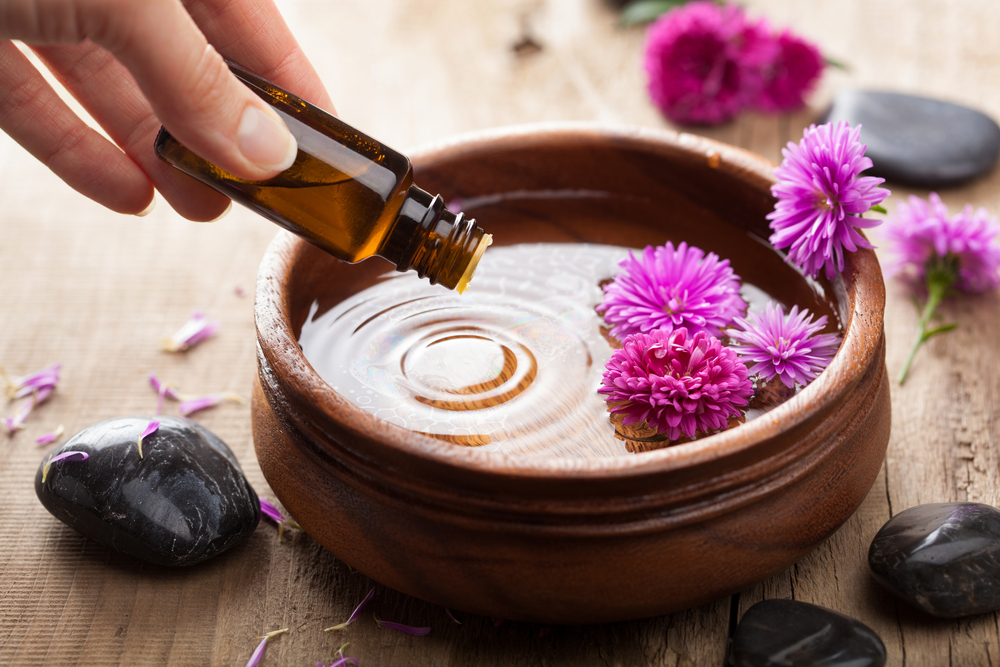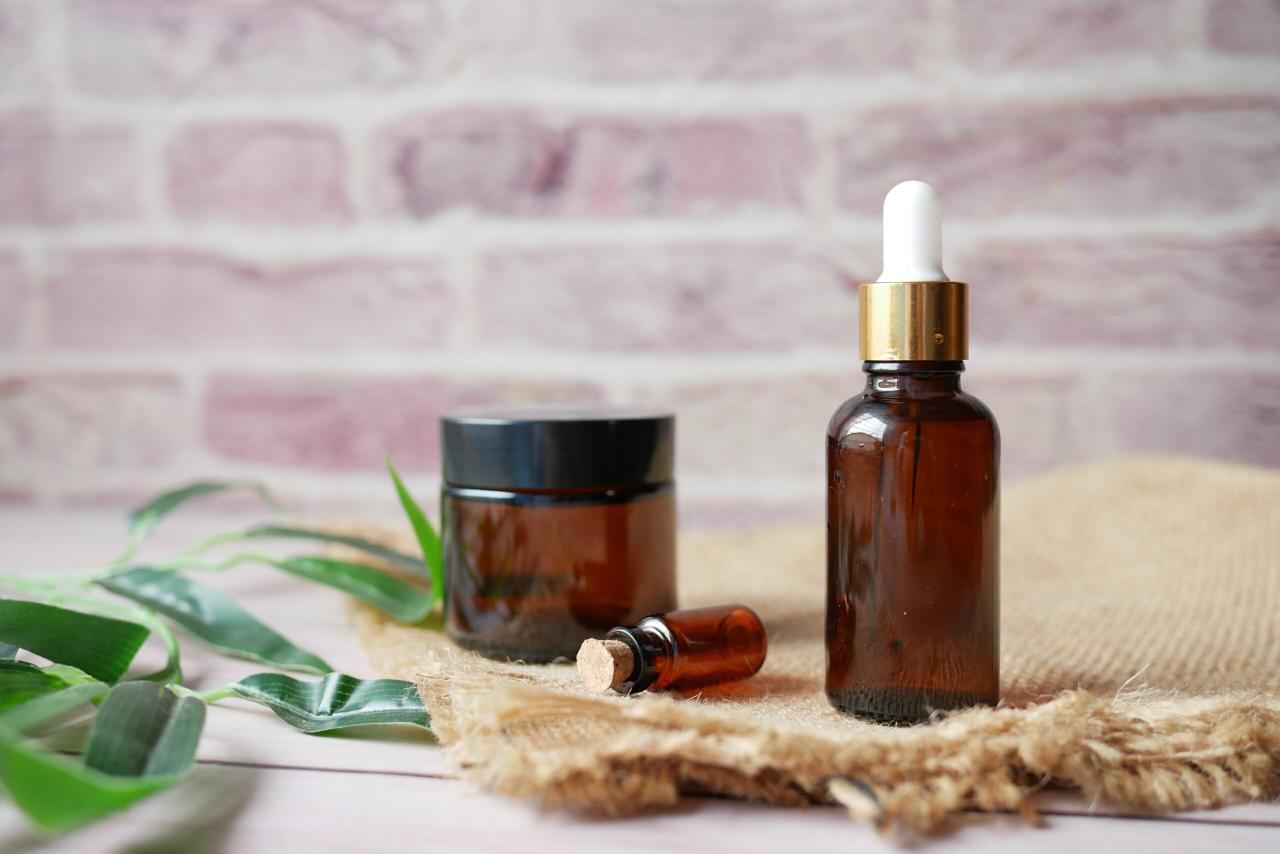In the realm of holistic healing, aromatherapy has emerged as a soothing balm for anxiety, offering a natural and effective way to alleviate stress and promote tranquility. Essential oils, extracted from the essence of plants, possess remarkable therapeutic properties that can gently calm the mind, reduce cortisol levels, and enhance sleep quality.
This comprehensive guide delves into the fascinating world of aromatherapy for anxiety, exploring the science behind its calming effects, the diverse range of essential oils with anxiolytic properties, and practical tips for incorporating this ancient practice into your daily routine.
Understanding Aromatherapy and Anxiety
Aromatherapy is the practice of using essential oils, which are natural plant extracts, for therapeutic purposes. Essential oils are highly concentrated and contain various chemical compounds that can interact with the body and mind. In the context of anxiety, aromatherapy may offer potential benefits in managing symptoms.
Anxiety is a common mental health condition characterized by excessive worry, fear, and nervousness. It can manifest in various forms, including generalized anxiety disorder, social anxiety disorder, and panic disorder. Aromatherapy, with its calming and relaxing properties, may provide a complementary approach to managing anxiety.
Types of Essential Oils for Anxiety Relief
Several essential oils have been studied for their potential anxiolytic effects. Some of the most commonly used oils for anxiety relief include:
- Lavender oil:Known for its calming and sedative properties, lavender oil is often used to promote relaxation and reduce stress.
- Bergamot oil:Bergamot oil has a refreshing and uplifting aroma that can help alleviate anxiety and improve mood.
- Chamomile oil:Chamomile oil is known for its soothing and calming effects, making it useful for reducing anxiety and promoting sleep.
- Clary sage oil:Clary sage oil has a balancing and calming effect that can help reduce anxiety and improve mood.
li> Ylang-ylang oil:Ylang-ylang oil has a sweet, floral aroma that can help reduce stress and anxiety, and promote relaxation.
It’s important to note that essential oils should not be ingested or applied directly to the skin. They should be diluted in a carrier oil, such as jojoba or coconut oil, before use.
Benefits of Aromatherapy for Anxiety

Aromatherapy, the practice of using essential oils for therapeutic purposes, has gained recognition for its calming and stress-reducing effects. Extensive research supports the use of aromatherapy for anxiety, demonstrating its ability to promote relaxation, reduce cortisol levels, and improve sleep quality.
Calming Effects
- In a study published in the journal Phytotherapy Research, researchers found that inhaling lavender essential oil significantly reduced anxiety levels in participants.
- Another study, published in Complementary Therapies in Medicine, showed that a blend of lavender, bergamot, and frankincense essential oils effectively reduced anxiety and improved mood in people with generalized anxiety disorder.
Stress Reduction
- Aromatherapy has been shown to reduce stress levels by activating the parasympathetic nervous system, which promotes relaxation and calmness.
- In a study published in the Journal of Alternative and Complementary Medicine, researchers found that inhaling rosemary essential oil reduced stress and improved cognitive function in healthy adults.
Improved Sleep Quality
- Aromatherapy can promote relaxation and improve sleep quality by reducing anxiety and stress.
- A study published in the journal Sleepshowed that inhaling lavender essential oil before bedtime significantly improved sleep quality and reduced sleep disturbances in people with insomnia.
Essential Oils for Aromatherapy
Aromatherapy utilizes the therapeutic properties of essential oils extracted from plants to alleviate anxiety. Essential oils possess calming and relaxing effects that help reduce stress and promote emotional well-being.
Numerous essential oils have demonstrated anxiolytic properties. Each oil offers unique benefits, aromas, and recommended methods of use. Here is a comprehensive list of essential oils for aromatherapy, along with their specific attributes:
Essential Oils for Anxiety
| Oil Name | Benefits | Aroma | Method of Use |
|---|---|---|---|
| Lavender | Calming, relaxing, promotes sleep | Floral, herbaceous | Diffusion, inhalation, topical application |
| Bergamot | Uplifting, reduces stress, improves mood | Citrusy, sweet | Diffusion, inhalation, topical application |
| Chamomile | Soothing, anti-inflammatory, promotes relaxation | Floral, slightly sweet | Diffusion, inhalation, topical application |
| Ylang-Ylang | Relaxing, reduces anxiety, promotes sleep | Floral, sweet, exotic | Diffusion, inhalation, topical application |
| Frankincense | Calming, grounding, reduces stress | Woody, spicy | Diffusion, inhalation, topical application |
| Vetiver | Grounding, calming, promotes sleep | Earthy, woody | Diffusion, inhalation, topical application |
| Clary Sage | Balancing, reduces anxiety, promotes hormonal balance | Herbal, slightly floral | Diffusion, inhalation, topical application |
| Marjoram | Calming, relaxing, reduces muscle tension | Herbaceous, slightly sweet | Diffusion, inhalation, topical application |
| Neroli | Calming, uplifting, promotes sleep | Floral, sweet, citrusy | Diffusion, inhalation, topical application |
| Sandalwood | Calming, grounding, reduces stress | Woody, slightly sweet | Diffusion, inhalation, topical application |
How to Use Aromatherapy for Anxiety
Aromatherapy can be incorporated into a daily routine in several ways. One method is through diffusion, where essential oils are dispersed into the air using a diffuser. This allows the oils’ calming scents to permeate the environment and create a relaxing atmosphere.Another
method is inhalation, where a few drops of essential oil are added to a handkerchief or tissue and inhaled directly. This can provide immediate relief from anxiety. Topical application, where essential oils are diluted with a carrier oil and applied to the skin, can also be effective.
However, it’s crucial to note that some oils may cause skin irritation, so a patch test is recommended before applying them to larger areas.
Creating a Relaxing Aromatherapy Environment
To create a calming and anxiety-reducing aromatherapy environment at home or in the workplace, consider the following tips:
-
-*Choose soothing scents
Opt for essential oils known for their calming effects, such as lavender, chamomile, or bergamot.
-*Use a diffuser
Diffusing essential oils into the air can help disperse their calming scents throughout the space.
-*Incorporate candles
Scented candles infused with calming essential oils can create a relaxing ambiance.
-*Take a relaxing bath
Add a few drops of essential oils to a warm bath to create a soothing and stress-relieving experience.
-*Apply topically
Dilute essential oils with a carrier oil and apply them to pressure points, such as the temples or wrists, for a calming effect.
Precautions and Safety Considerations
While aromatherapy offers numerous benefits, it’s essential to be aware of potential risks and take appropriate precautions to ensure safe and responsible use.
Skin irritation and allergic reactions are possible, especially when essential oils are applied directly to the skin. Always dilute essential oils in a carrier oil, such as almond oil or jojoba oil, before topical application.
Pregnant Women
Certain essential oils, such as clary sage and rosemary, can stimulate uterine contractions and should be avoided during pregnancy.
Children
Essential oils can be harmful to children, especially those under the age of six. Avoid using essential oils around young children or applying them directly to their skin.
Individuals with Certain Health Conditions
Individuals with asthma, epilepsy, or other health conditions should consult with a healthcare professional before using essential oils.
General Guidelines
- Use essential oils in well-ventilated areas.
- Avoid using essential oils for extended periods.
- Store essential oils in dark, cool places away from children and pets.
- If you experience any adverse effects, discontinue use and consult a healthcare professional.
Last Point

Aromatherapy for anxiety is a powerful tool that can empower individuals to take control of their well-being. By harnessing the therapeutic potential of essential oils, we can create a sanctuary of tranquility in our homes and workplaces, promoting relaxation, reducing stress, and fostering a sense of inner peace.